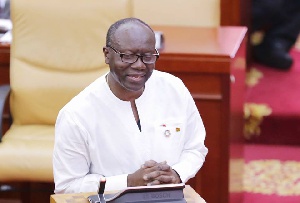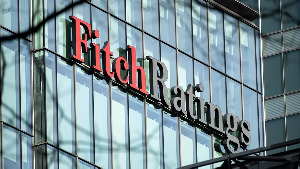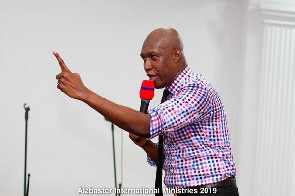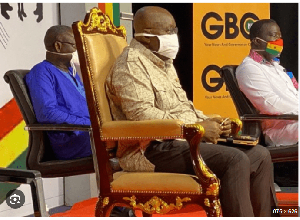The Minister of Finance, Ken Ofori-Atta, will today present the 2020 Budget Statement and Economic Policies of the government to Parliament, and outline measures to sustain the macroeconomic gains the country has achieved and bring relief to businesses and the citizens in general.
It is a constitutional requirement for the Minister of Finance on behalf of the President to present to Parliament every fiscal year the Budget Statement and Economic Policy of Government, for scrutiny and debate.
Next year’s budget will be the first budget of the current government since the country completed the International Monetary Fund (IMF) Extended Credit Facility programme which began in 2015.
The 2020 budget would be the fourth budget of the current and the maiden budget of the government in an election year.
The Ministry of Finance in a press statement copied to the Ghanaian Times in Accra yesterday said: “the 2020 budget would focus primarily on consolidating the gains made by government through its prudent economic management over the three-year period since assuming office.”
“Aside from highlighting Ghana’s fiscal performance between January and September 2019, as well as the country’s fiscal strategy for 2020, the annual budget would also touch on policies to secure the macroeconomic gains achieved to propel economic transformation of Ghana,” the statement said.
The Ministry of Finance further said road rehabilitation and construction, government priority programmes and funding for the African Continental Free Trade Area Secretariat in Accra were expected to be highlights of the 2020 budget.
Concerns
Some cross section of Ghanaians and businesses who spoke with the Ghanaian Times called on government to announce measures to raise more revenue to finance government developmental projects, contain the expenditure of government in order not to derail the fiscal stability of the country, and also promote the stability of the cedi.
Also they said government must outline measures to stem the rising cost of goods and services in the country and give incentives to local businesses to make them thrive.
Revenue
The Finance Minister in his presentation today will outline measures to raise more revenue to finance infrastructural and developmental projects.
The country’s total revenues for the first half of 2019 underperformed by 15 per cent, and financial experts say this would require government to announce innovative measures to raise more revenues next year.
In view of this, the Trades Union Congress, (TUC) in its position on the impending budget statement copied to the Ghanaian Times, entreated the government to review the exemption regime “because it benefits only a few.”
Tax exemption increased to GHC.2 million (2.6 percent of Gross Domestic Product (GDP)) in 2017 from GHC391.9 million (0.9 percent of GDP) in 2010.
According to TUC it as unacceptable for government to give huge tax exemptions to corporate bodies, when the country was struggling to meet its revenue targets.
Taxes
The government has promised that it would not introduce new taxes in next year’s budget, stressing that additional taxes would burden the private sector.
The chairman of the Finance Committee of Parliament, Dr Mark Assibey-Yeboah has revealed that government would not introduce new taxes in next year’s budget.
“I don’t think new taxes will be introduced. This is a listening government and I don’t think that any new taxes have been programmed in the budget,” he said.
The Minority in Parliament in a press conference at Parliament House entreated the government to scrap the National Fiscal Stabilisation Levy and the Special Import Levy to lessen the final burden on businesses.
Expenditure
The government has passed the Fiscal Council and Fiscal Responsibility Law and subsequently establish the Fiscal Council to advise government to be fiscally disciplined and not overspend the budget.
The TUC in its position on the 2020 budget statement cautioned the government against over spending the budget next year in a bid to win the 2020 general elections, arguing that overspending the budget would derail the macroeconomic gains the country had achieved.
“As we enter another election year, there is the temptation to spend on vote-winning projects that neither improves livelihoods of the people nor enhances the potential for future growth thereby totally destroying whatever gains we have made in previous years and set ourselves up for another painful and unnecessary IMF policies that destroy livelihoods and lower standards of living,” the TUC said, and stressed that it would hold the President, Nana Addo on his promise not to overspend the budget next year.
Industrialisation
The government has already started the implementation of its 1DIF programme in a bid to industrialise the economy and has commissioned some factories to that effect.
Ghanaians in today’s budget expect the Minister of Finance to roll out measures to implement the ID1F initiative and strategies to promote the industrialisation agenda of the country.
To this end, the TUC has said “the budget must outline practical measures to support domestic production and reduce national dependence on import for basic products.”
The Ghana Federation of Labour also on its expectation of the 2020 budget said for the government's industrialisation agenda to succeed, it must outline measures to tackle the challenges facing the textile manufacturing industry, which has the capacity to create more jobs and provide tax revenue for government.
The challenges the Federation mentioned include smuggling of fake textile products into the country and high taxes.
General News of Wednesday, 13 November 2019
Source: ghanaiantimes.com.gh













